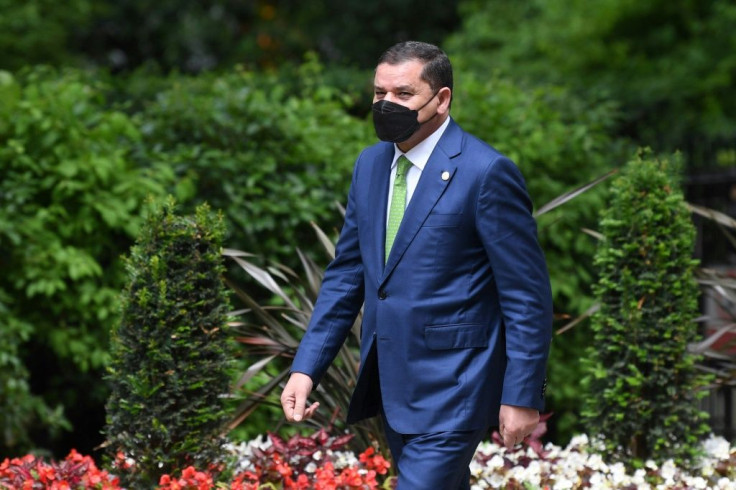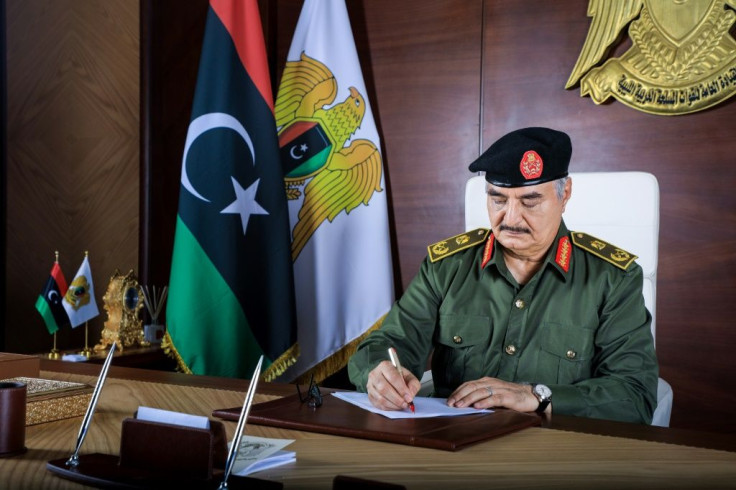Libya Parliament Withdraws Support For Unity Government
Libya's parliament on Tuesday passed a no-confidence vote in the war-scarred country's unity government, dealing a new blow to UN-backed peace efforts and plans for December elections.
Eighty-nine of the 113 lawmakers who attended the lower house session in the eastern city of Tobruk voted to withdraw confidence from the Tripoli-based administration of interim Prime Minister Abdulhamid Dbeibah, spokesman Abdallah Bliheq said.
But an upper house based in the capital rejected the vote, saying it violated established procedures, laying bare once more the extent of divisions between the country's east and west.
The latest escalation came amid tensions between the House of Representatives and Dbeibah's government, which took office earlier this year with a mandate to guide the North African country to elections on December 24.
Those polls look increasingly unlikely to happen, casting doubt on a United Nations-led process aimed at ending a decade of violence since the fall of dictator Moamer Kadhafi.

Tuesday's lower house vote, in a closed session overseen by speaker Aguila Saleh, came less than two weeks after he outraged opponents by ratifying an electoral law seen as bypassing due process and favouring eastern-based military strongman Khalifa Haftar.
Haftar had waged a year-long assault on Tripoli, leaving thousands dead, before reaching a formal ceasefire with his western opponents in October last year.
While the ensuing UN-led peace process has led to a period of calm, wrangling over electoral laws and the presence of foreign forces have complicated moves towards a more permanent peace.
Parliament spokesman Bliheq said the cabinet would become "a caretaker government", although it would not be replaced.

But the High Council of State, the parliament's upper house based in Tripoli, quickly rejected that.
"Our objective is to hold elections," HCS chief Khalid al-Mishri told journalists after meeting Morocco's chief diplomat Nasser Bourita during a visit to Rabat.
"We don't want to place so much importance on things that could get in the way of that goal. This government will keep working until December 24, and we must ensure conditions that allow for elections to be held."
An HCS spokesman also said Tuesday's vote contravened an agreement signed in the Moroccan town of Skheirat in 2015.
A parliamentary source in the eastern city of Benghazi told AFP that the vote had passed with only 113 votes, despite parliamentary rules requiring a quorum of 120 members of the 200-seat house.
The HCS had also on Monday rejected the presidential election law announced earlier this month, saying it had been passed "without a legal vote or consensus" and calling for presidential elections to be postponed for a year.
Critics of the law have pointed to a clause stipulating that military officials may stand in presidential polls on condition they withdraw from their posts three months beforehand.
That would allow for a presidential run by Haftar, who is allied with the legislature's speaker Saleh and whose forces control eastern Libya as well as parts of the south.
Dbeibah's transitional administration, the product of UN-led talks in Tunis and Geneva, had won a lower house vote of confidence in March but has irked members of that chamber -- which has so far not held a vote on his budget.
On Monday it had set up a commission of enquiry to examine deals Dbeibah had signed, his expenses and nominations by his government.
Mohamed Eljarh, a consultant at Libya Outlook, tweeted that Tuesday's no-confidence vote was "a major escalation" by the parliament at a "critical juncture" that would "add to the confusion and uncertainty" in Libya.
© Copyright AFP 2024. All rights reserved.





















